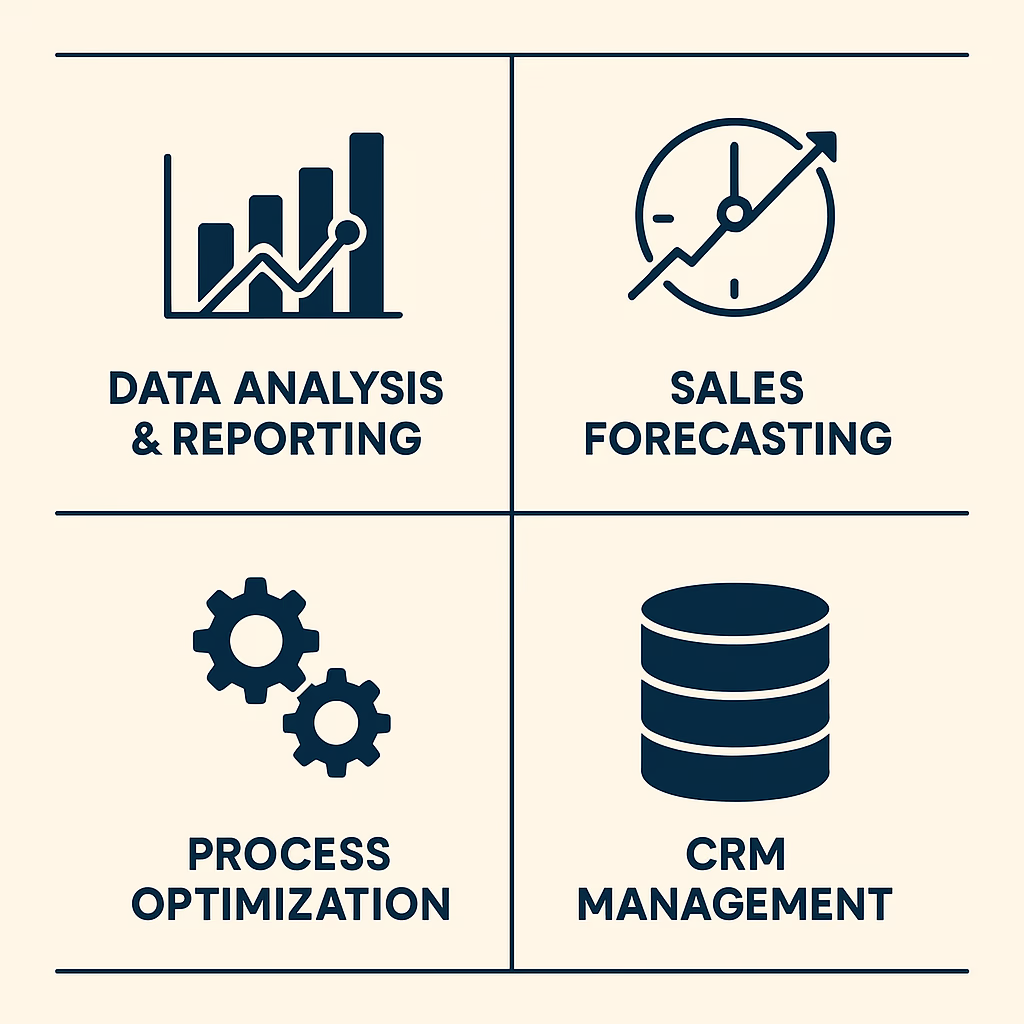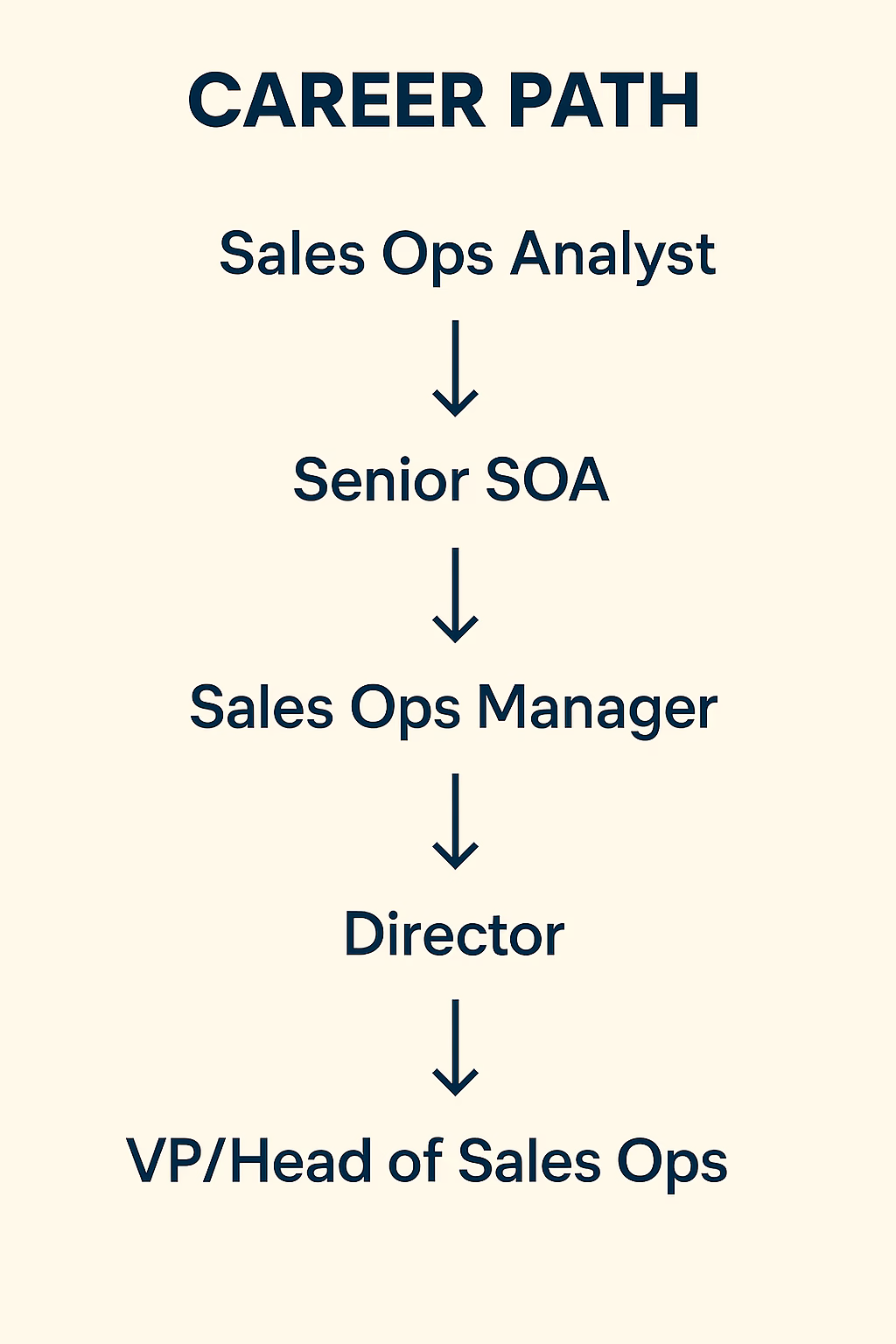What Is a Sales Operations Analyst? A Guide to the Engine Room of Sales
In today’s market, sales teams are under immense pressure to perform. Hitting quotas and navigating complex customer journeys requires more than just skilled sellers. Behind every high-performing sales organization is a critical, data-driven function: Sales Operations.
At the heart of this function is the Sales Operations Analyst.
This is the role that bridges the gap between sales strategy and frontline execution. A Sales Ops Analyst transforms raw data into actionable insights and fine-tunes the entire sales engine for peak performance.
What Does a Sales Operations Analyst Actually Do?
A Sales Operations Analyst is dedicated to making the entire sales team more efficient and effective. Their primary mission is to analyze and optimize the organization’s sales processes, systems, and data to drive sustainable revenue growth.

They are the analytical experts who dig into sales data, identify trends, and provide the insights that sales leaders use to make smarter, data-driven decisions. Ultimately, all their efforts are geared toward helping the sales organization meet and exceed its targets.
The Sales Ops Analyst typically sits within the Sales department or a broader Revenue Operations (RevOps) team, acting as a vital link between frontline reps and other departments like Marketing and Finance.
A Day in the Life: Core Sales Ops Analyst Responsibilities
The daily life of a Sales Operations Analyst is dynamic and multifaceted. While tasks vary, their work consistently revolves around four core areas.
Here’s a look at their primary responsibilities:
- Data Analysis & Reporting: This is the analytical heart of the role. Analysts collect and analyze sales data to create the reports and dashboards that visualize KPIs, track pipeline health, and identify hidden trends or opportunities.
- Sales Forecasting: They play a key role in developing and refining sales forecast models, using historical data and pipeline analysis to improve predictability and inform strategic business planning.
- Process Optimization: A primary goal is to evaluate sales processes—like lead management or quoting—to identify bottlenecks, streamline workflows, and implement changes that make the sales engine run faster and more smoothly.
- CRM Management: They are often the caretakers of the company’s CRM (like Salesforce). They work to ensure data is clean, accurate, and complete, as poor data quality undermines all other analytical efforts.
The Sales Ops Skillset: A Blend of Technical & Soft Skills
Excelling as a Sales Operations Analyst requires a powerful combination of technical expertise and polished soft skills. One is not enough; true effectiveness comes from their synergy.
This table breaks down the must-have skills for any successful Sales Ops Analyst.
| Skill Category | Skill Name | Why It's Important |
|---|---|---|
| Technical | CRM Proficiency (e.g., Salesforce) | Managing the core sales database, tracking pipeline, and ensuring data integrity for analysis. |
| Technical | Advanced Excel/Spreadsheets | Essential for data manipulation, ad-hoc analysis, and building financial models. |
| Technical | BI & Data Visualization (e.g., Tableau) | Creating interactive dashboards to communicate complex trends and insights effectively. |
| Technical | SQL | Extracting data directly from databases for more complex analysis and reporting. |
| Soft | Analytical & Critical Thinking | Dissecting problems, interpreting data logically, and deriving meaningful insights. |
| Soft | Problem-Solving | Developing practical, data-driven solutions to address performance gaps or inefficiencies. |
| Soft | Communication | Clearly articulating findings, insights, and recommendations to diverse audiences. |
| Soft | Collaboration & Teamwork | Working effectively with sales, marketing, finance, and other teams to align efforts. |
The Sales Ops Tech Stack: Tools of the Trade
To get the job done, Sales Operations Analysts rely on a robust toolkit of software. Proficiency with these tools is essential for gathering data, automating tasks, and driving insights.
Here are the key categories in the sales ops tech stack:
- Customer Relationship Management (CRM): The undisputed centerpiece of the stack. It’s the central hub for customer data, pipeline tracking, and activity logging. Examples: Salesforce, HubSpot CRM.
- Spreadsheets: Indispensable for ad-hoc analysis, data manipulation, and building complex models. Examples: Microsoft Excel, Google Sheets.
- BI & Data Visualization: Used to create interactive dashboards and explore data trends beyond what a standard CRM report can offer. Examples: Tableau, Power BI, Looker.
- Sales Engagement Platforms (SEPs): These tools streamline sales outreach, automate communication, and track prospect engagement. They are a rich data source for analyzing rep activity and effectiveness. Examples: Kixie, Salesloft, Outreach, Gong.
Why This Role is More Than Just Reports: The Strategic Impact of Sales Ops
The Sales Operations Analyst’s work has a direct and strategic impact on revenue growth. They do more than just generate reports; they make the entire sales organization better.
Here’s how they create strategic value:
- Drives Sales Team Productivity: By streamlining processes and removing administrative burdens, they free up reps to focus on core selling activities, which can boost productivity by up to 30%.
- Enables Data-Driven Decisions: They provide leaders with reliable analysis, allowing them to make informed decisions about territory planning, quota setting, and strategy based on evidence, not intuition.
- Contributes Directly to Revenue: A more efficient sales team closes deals faster. Better data leads to higher win rates. Data-informed strategies lead to better market penetration and customer acquisition.
What is the Career Path for a Sales Operations Analyst?
The Sales Ops Analyst role is a fantastic launchpad for a career in operations, sales leadership, or data analytics. Advancement is fundamentally tied to demonstrating measurable impact on sales performance.

A typical career trajectory looks like this:
- Sales Operations Analyst / Specialist
- Senior Sales Operations Analyst
- Sales Operations Manager
- Director of Sales Operations
- VP of Sales Operations / Head of Sales Operations



